Fritextsökning
Artiklar per år
Innehållstyper
-
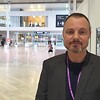
Det här vet vi om den nya coronavarianten omikron XE
En ny rekombinant variant av coronaviruset med namnet omikron XE har väckt uppmärksamhet. Life Science Sweden frågade Niklas Arnberg, professor i virologi vid Umeå universitet, vad vi vet om den nya varianten.
-
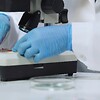
WHO: Nya omikronvarianten XE kan vara mer smittsam
Den nya varianten omikron XE kan vara tio procent mer smittsam än de tidigare omikronvarianterna, rapporterar WHO och uppmanar länder att återuppta sekvensering för att kunna upptäcka nya varianter.
-

Life science-företag på lista över bästa arbetsplatserna
Flera företag inom life science placerar sig på listan över Sveriges bästa arbetsplatser som sammanställts av undersöknings- och konsultföretaget Great place to work.
-
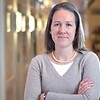
Lucy Robertshaw: Are we in the perfect storm?
“Is there a perfect storm on the horizon again as elective surgeries were cancelled due to patients being admitted with Covid-19? We now have a long backlog of people who are presenting with chronic diseases that need to access healthcare again”, writes Lucy Robertshaw in a column.
-
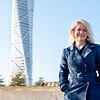
This is how Anette Steenberg will put Medicon Valley on the world map
Anette Steenberg has been CEO of the Swedish-Danish life science cluster Medicon Valley Alliance since 1 November last year. Life Science Sweden called her to ask about her visions and the challenges of merging the worlds of Swedish and Danish life science.
-

Björn Ursing: Physicians new role in AI driven healthcare
”AI could be the key we need for tomorrow’s healthcare, but it is not a stand-alone tool”, writes Björn Ursing in a column about how the role for physicians changes in the era of AI.
-
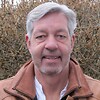
LabDays tillbaka i Stockholm igen i april
50-tal utställare på fackmässan som är tillbaka med full kraft efter pandemin.
-
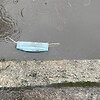
Tre gånger så många har dött av covid-19 enligt ny studie
18 miljoner människor – så många kan ha dött under pandemin, säger forskare bakom ny stor internationell studie. Det är tredubbelt fler än vad som tidigare rapporterats. Men studien har redan fått kritik.
-
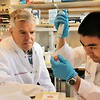
Elicera develops CAR-T against solid tumours – may become the first in the world
in that field as well. “It is the largest field, and the potential is enormous,” says the company’s CEO Jamal El-Mosleh.
-
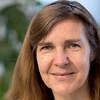
CAR-T therapies give continued hope: “Almost half of the patients have become disease-free”
become disease-free, at least of those treated with Yescarta, which are the ones I know best,” says Gunilla Enblad, Chairman of the national working group for CAR-T treatment.
-
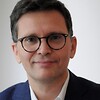
Samuel Lagercrantz: Immunotherapy against cancer is still in its early stages
with the saying: He who laughs last laughs best, writes Samuel Lagercrantz in an editorial.
-

Björn Arvidsson: ”We need to change perspective”
If you say “life science” to a person on the street and ask them to explain what it is, you will probably get no good answer. The same question to your network will generate as many versions as the people you ask. Most likely, we will miss many
-
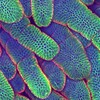
A new international stem cell research centre has been created in Copenhagen
A new centre for stem cell research opened to the public in January. The Novo Nordisk Foundation backs the initiative with the ambition that the centre will advance new medical technology and new stem cell therapies.
-
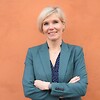
Marie Gårdmark: Finally, it’s time for a revision of the EU pharma legislation
A challenge for the EU Commission is to deliver a new framework that will also take care of another “pillar” of the pharmaceutical strategy, namely, to ensure that new medicines will be available for all citizens in Europe, writes Marie Gårdmark
-
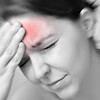
Lundbeck behind the first EU-approved intravenous migraine treatment
A preventive, intravenous treatment for migraines has been approved in the EU for the first time.
-

Här är läkemedelshöjdpunkterna från 2021
Ett läkemedel mot trippelnegativ bröstcancer, en genterapi mot multipelt myelom och ett nytt läkemedel mot fetma hör till höjdpunkterna när det gångna årets nya läkemedel summeras.
-
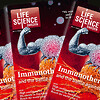
Life Science Sweden´s international issue is on its way
A new issue of Life Science Sweden is on its way to print, packed with news, interviews and reports.
-

Study: An objective diagnosis of constant tinnitus may be possible
A new method that measures brain activity during sound stimulation can make it possible to objectively diagnose and identify people who suffer from constant tinnitus, which was demonstrated in a study made by researchers at the Karolinska Institute.
-
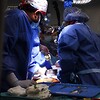
Patient som fick grishjärta återhämtar sig – inga tecken på avstötning
Den amerikanske man som fick ett genmodifierat grishjärta transplanterat i början av året återhämtar sig fortfarande på sjukhus. Efter fem veckor syns inga tecken på avstötning, enligt läkare.
-

“Together Stockholm-Uppsala and Medicon Valley can make Scandinavia a leading life science region”
“Denmark, Sweden, Norway and Finland all have national life science strategies, but the Swedish strategy is the only one explicitly emphasizing the Nordic dimension. But what if the leading life science nations, Denmark and Sweden, joined forces, took the lead and pioneered Nordic life science collaboration? Wouldn´t we then be able to "bake a bigger cake?", writes Anette Steenberg and Ulf G. Andersson in a debate article.
-
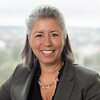
Stockholm aims at becoming one of the world’s top life science regions
Regional Chair for Finance, Irene Svenonius (M), believes that Stockholm can realise the goal of becoming one of the world’s top 5 regions in life science by 2025. One step on the way to achieve this is by hosting a world-leading congress in medtech.
-

Tusentals personuppgifter kan ha läckt vid covidtester
Förra året gjorde svenskarna över 14 miljoner PCR-tester för att påvisa covid-19. Nu har forskare vid Umeå universitet upptäckt att personuppgifter kan ha läckt från de företag som hanterade testerna.
-

The route to vaccines for everyone: “We did not just sit around and wait”
says in an interview with Life Science Sweden.
-
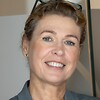
Anna Törner: Success requires bold decisions!
“Doing things right is fine, but doing the right things as soon as possible is even better”, writes Anna Törner in a column.